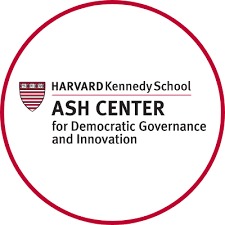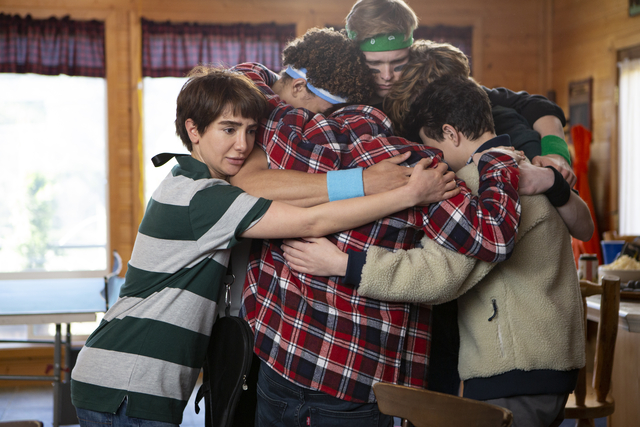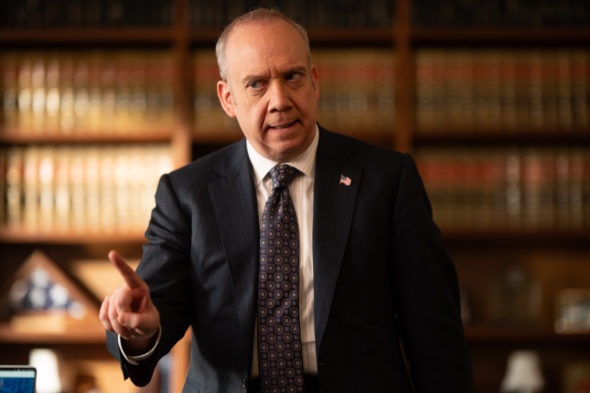Rightwing scream shitter and convicted felon Dinesh D’Souza has been having a sad time lately, what with his publisher recalling and pulping his fake election fraud conspiracy theory book2000 Mules a couple weeks back, just as it was hitting bookstore shelves. Rightwing publisher Regnery explained the unusual recall was the result of a “publishing error,” and D’Souza claimed it was because “Somehow a significant error got missed by the publisher,” which is a heck of an artful use of passive voice, considering that he was the author whose error somehow made it into the manuscript. Must have been one hell of a typo! The book has been rescheduled for an October release, possibly on recycled paper stock.
More Context, Mules! Dinesh D’Souza Mule Book Had ERROR In It? HOLD THE F*CKING PHONE!
Well now we’re getting at least some possible insight into why the book was pulled, thanks to enterprising National Public Radio reporter Tom Dreisbach, who scoured Los Angeles area bookstores to see if any copies were missed by the recall. And lo, he did find one, “tucked into a shelf of the ‘Current Affairs’ section at a Barnes & Noble in the San Fernando Valley.” Dreisbach notes that the book didn’t “appear to suffer from an obvious production error” like blank pages or messed up page numbers or the accidental inclusion of D’Souza’s mug shot for the author photo on the jacket (we added that last one ourselves). So what might have led Regnery to recall the book and destroy any evidence of its contents?
Dreisbach notes that the book “regurgitates” the bullshit claims of the 2000 Mules movie, which presented a largely evidence-free conspiracy theory about a vast scheme to steal the 2020 election, a conspiracy theory promulgated by the group “True the Vote,” which first came to infamy by lying about the 2016 presidential election. True the Vote claimed that three million undocumented immigrants had voted, which is why Hillary Clinton only appeared to have won the popular vote in 2016. Funny how that evidence never turned up!
In the 2000 Mules movie, True the Vote’s Catherine Engelbrecht and Gregg Phillips claim that in swing states, thousands and thousands of “ballot mules” picked up fraudulent mail-in ballots at various shadowy nonprofit groups, then took them to ballot drop boxes to swing the election. Never mind that not a single audit of ballots has turned up more than a handful of improper ballots, or that mail-in ballots all have unique barcodes tied to registered voters.
The movie glosses over minor details like that in favor of True the Vote’s made-up hypothesis that cell phone data shows movements of people that can only mean hundreds of thousands of false ballots were “trafficked.” Allegedly, the cell data showed individual people going again and again to offices of the unnamed nonprofits, after which they went to locations of multiple absentee ballot drop boxes to distribute the ballots.
There are problems with the claim, however, as if the fact that nobody’s found hundreds of thousands of fake ballots weren’t enough. For starters, ballot drop boxes, by design, are in highly public places so people can easily get to them, outside churches, public libraries, government offices, and the like. So of course lots of people will go by those places again and again in their daily routine. For another, cell phone geolocation data isn’t nearly precise enough to place any of those phones right next to a ballot box. And while the movie claims the phone data matches up with surveillance video of people visiting drop boxes again and again, it never once shows video of the same person leaving ballots in more than one drop box. (Say, did we mention that no massive vote fraud has actually been found, either?)
Beyond all the movie-regurgitating, NPR found that D’Souza did indeed make some additional claims that weren’t in the movie. For starters, the movie never names the nonprofits that were supposedly serving as “stash houses” for fraudulent ballots that were such clever fakes that no state has found any of ’em. In the book, D’Souza named seven organizations, so NPR asked all of them to comment on the accusations. Only two of the seven offered a comment on the record; one of the groups that declined said that it didn’t want to give the claims “further oxygen.”
One of the groups that did reply was the National Education Association, the teachers union, whose spokesperson called the allegations “trash” and noted that D’Souza’s attorneys must have refused to let him make the claim in the film.
“We would hope anyone looking at his nonsense can quickly see that these claims are false and designed to gin up those who persist in peddling the Big Lie about the 2020 election,” said the NEA spokesperson.
The other group that went on the record, the New Georgia Project, the voting rights group founded by Stacey Abrams, had a lot to say about the book’s accusations:
Aklima Khondoker, the Chief Legal Officer for the New Georgia Project, called the allegations “malarkey and hogwash. Because they’re not based in fact. They’re based on conspiracy theories.”
Khondoker said the allegations in D’Souza’s book “can be viewed as libelous,” and noted that neither True The Vote nor D’Souza contacted the New Georgia Project for comment – a fundamental step for any journalistic or documentary project.
Khondoker declined to say whether the New Georgia Project would take legal action in response to the book, but said, “It sounds like a bunch of lies committed to paper. And there are legal consequences for doing that.”
You know, we won’t really be all that surprised if the October re-release of the book doesn’t include the names of any nonprofits at all. Call it a hunch!
When Dreisbach contacted True the Vote for comment on the book’s withdrawal, the organization very emphatically D’stanced itself from D’Souza. Engelbrecht and Phillips, who are listed as producers in the movie’s credits, may have collaborated with D’Souza on the film, but the group’s statement doesn’t even name him.
“True the Vote had no participation in this book, and has no knowledge of its contents,” said Brian Glicklich, a representative for the group, in an emailed statement. “This includes any allegations of activities of any specific organizations made in the book. We made no such allegations. The book reflects the views of the author, not of True the Vote, Catherine Engelbrecht, or Gregg Phillips.”
The statement did at least stop short of saying they weren’t even sure they’d ever met D’Souza, or that he’d only delivered coffee during the making of the “documentary.”
Also too, when asked to comment specifically on whether it had provided D’Souza with the names of the seven nonprofits he mentioned in the book, Glicklich didn’t specifically respond, but instead emailed a second copy of the statement above, with “We made no such allegations” in boldface, so there.
And while he didn’t respond to Dreisbach’s requests for comment on the contents on the book, D’Souza sort-of replied yesterday when Dreisbach tweeted a link to the NPR piece. Rather than responding in writing, D’Souza posted a 53-minute video of a podcast that was posted before NPR even published the article — D’Souza calls it a “hit piece coming” from NPR, which he described as “American Pravda,” also calling Dreisbach “dishonest” and a “hit man” who’s “obsessed with debunking my book and movie” — and that was just in the first minute and 30 seconds. So no, the video isn’t actually a rebuttal of the article, since D’Souza hadn’t seen it and refused to speak to Dreisbach.
We only skimmed the 15-minutes devoted to the NPR story; it starts with the lie that NPR is mostly funded by taxpayers, which, no, not since decades of threats by Republicans to defund it. The rest is nitpicking and hair-splitting about Dreisbach’s earlier debunking of the movie, and whining that since Dreisbach is looking at a copy that should have been recalled, he’s not really discussing D’Souza’s real book at all, since it hasn’t been published.
Dreisbach replied to D’Souza’s tweet with some specific questions about the book:
Hi Dinesh,
Here are some questions I’d still like to get answers on:
– What was the “significant error” that led to the book’s recall?
– Why did you name those 7 nonprofits in the book?
_ Regarding those claims, True the Vote says “We made no such allegations.” Your response?
Dearest reader, you may be shocked to learn that D’Souza never replied.
[NPR]
Yr Wonkette is funded entirely by reader donations. If you can, please give $5 of $10 a month so we can keep you on top of what the lying liars are up to!
























































![Key Metrics for Social Media Marketing [Infographic] Key Metrics for Social Media Marketing [Infographic]](https://www.socialmediatoday.com/imgproxy/nP1lliSbrTbUmhFV6RdAz9qJZFvsstq3IG6orLUMMls/g:ce/rs:fit:770:435/bG9jYWw6Ly8vZGl2ZWltYWdlL3NvY2lhbF9tZWRpYV9yb2lfaW5vZ3JhcGhpYzIucG5n.webp)






















